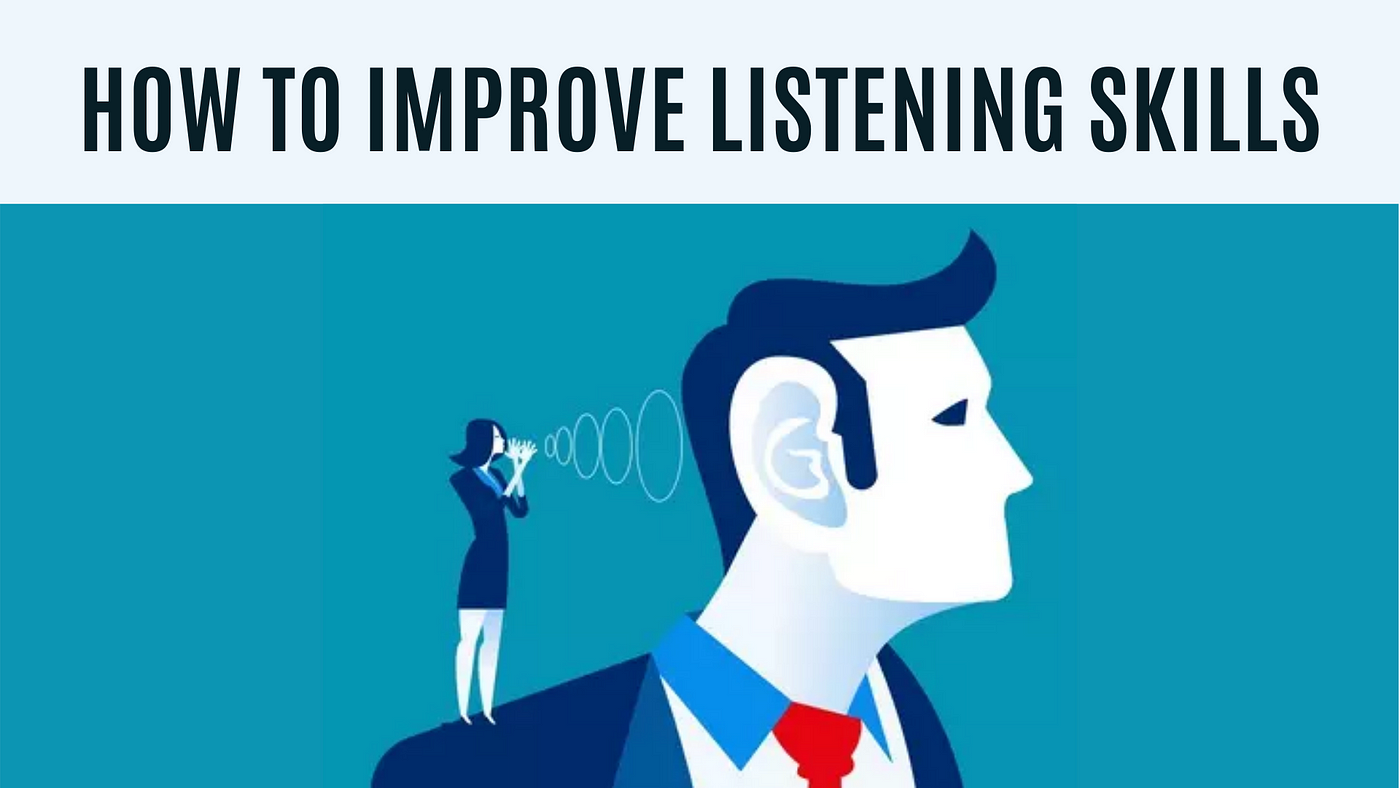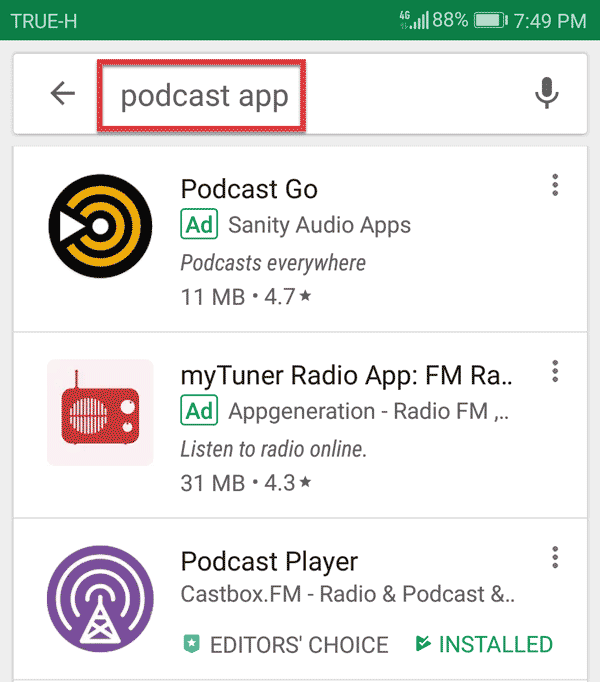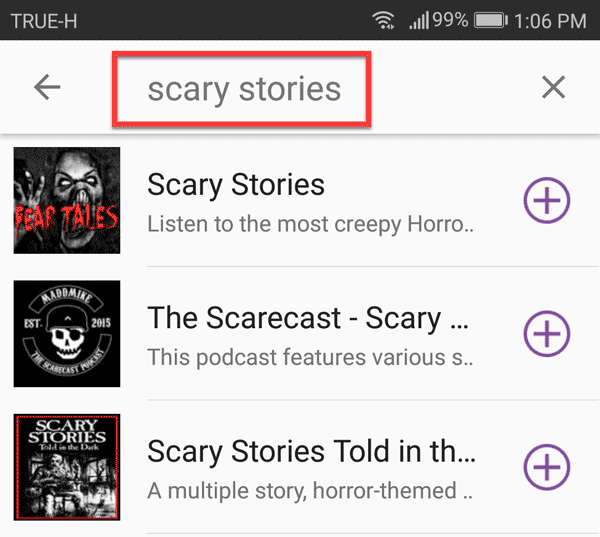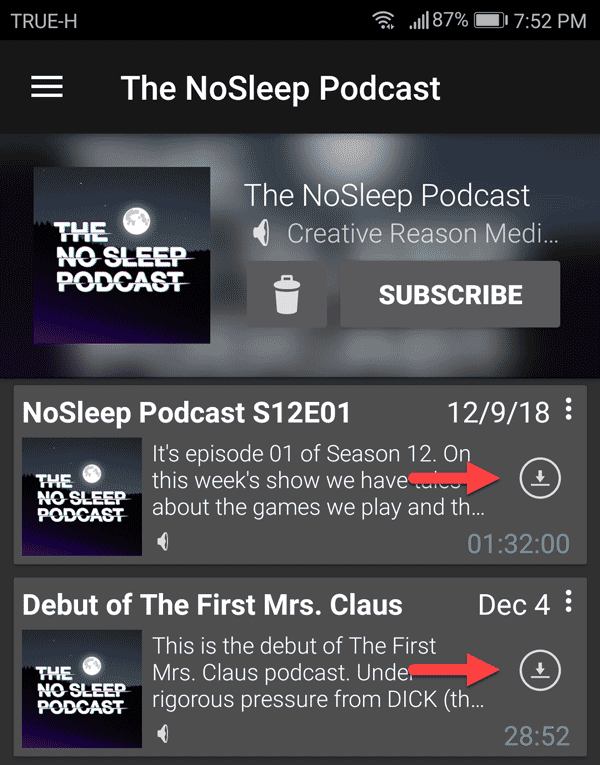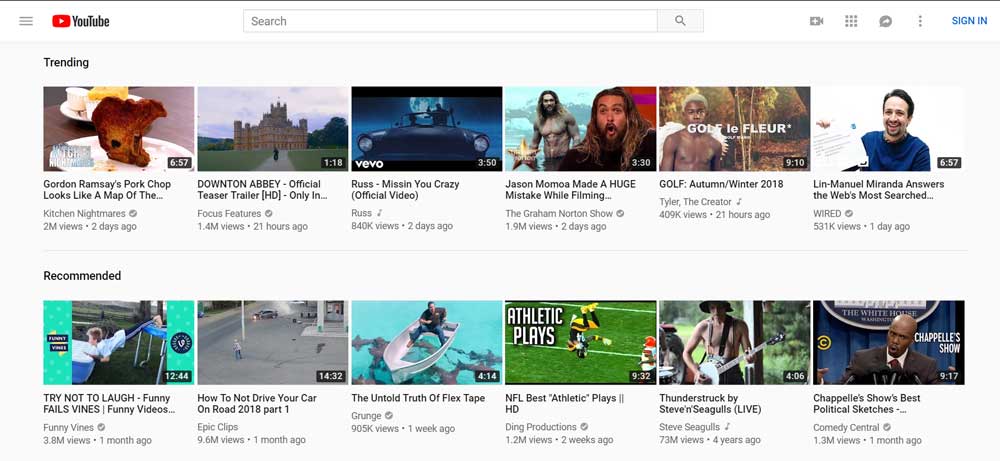How to improve your listening skills
How to improve your listening skills
How to improve your listening skills?
Listening is an integral part of informed decision making. Listen to understand, not speak. Here’s how you can improve your listening skills…
In today’s high-speed and tech-savvy world, communication is more important than ever, and listening is the unsung hero of communication. All of us like to praise great orators and speakers, but listening is equally powerful. Genuine listening has become a rare gift — the gift of time. It helps build relationships, solve problems, ensure understanding, resolve conflicts, and improve accuracy. At work, effective listening means fewer errors and less wasted time. At home, it helps develop resourceful, self-reliant kids who can solve their own problems. Listening builds friendships and careers. Communication is a two-way street. But it’s not just about what we say. As the old saying goes, we have two ears and one mouth — so we ought to be able to listen twice as much as we speak. The fact of the matter is, we need to be better listeners, particularly at this point in time. To be able to actually listen, take in someone else’s points, and retain the information is not only better for whatever work process is going on at the moment. It also builds far more trust, promotes empathy, and forges a work culture of engagement and exchange.
Despite the benefits that good listening offers, however, many people struggle with truly listening when others are speaking. Here are a few tips on how you can improve your listening skills.
Ways to improve listening
Allow silence to the speaker
Give the person speaking time to pause and collect their own thoughts while they are talking. Everyone talks with a different style and pace. Some get nervous when they’re talking and tend to need to slow down and clarify for themselves before saying an idea out loud. Don’t try to fill in the silences with your own interjections. Let the speaker have the room and the time to say what they need to say.
Ask good questions
And not only good questions, ask questions that are relevant and useful, and make the whole room go into thinking about the question. Asking useful questions can help you better understand what the other person is saying. To encourage further discussion, make them open-ended prompts that give them the opportunity to further elaborate. Try asking, “What do you think we should do about this?” Good questions act as evidence that you’re listening to and show that you’re interested in building on what you heard.
Do a follow-up in your own words
Don’t respond to the speaker with your thoughts right away. It’s far more effective to follow-up on their thoughts in your own words. It reflects the fact that you understood it — and if you didn’t, they can clarify. For example, start with “I hear you saying that …” and reiterate carefully. Not only do you demonstrate that you are actually listening, but the speaker will, in turn, be more receptive to your point of view knowing you understand theirs.
Do a recap in mind
How much of what is said do we actually remember? One highly effective way to recall a conversation is to recap in your mind on what was said. Recall the point of the discussion, and list the action steps each party is going to do in response. This doesn’t need to be word for word, just an overview. Doing a mental summary allows you to make sure that you did not miss out on important facts or pieces of information and allows you to remember them for a longer time frame.
Don’t take word-to-word notes
Taking word-to-word notes of what the speaker is saying can be a tedious and hectic task, and there is always a possibility that you would miss out on some points. If you spend all your mental energy trying to capture what someone says word-for-word, it’s harder to be an engaged listener. Typing notes, especially, can make us worse listeners. Good listeners often forgo taking detailed notes so they can pay better attention. Use an app instead to catch the details. UberConference and Zoom, among other conferencing apps, include a record feature, while Ecamm can record your Skype calls. Many note apps, including OneNote and Evernote, also include recording tools. Let those apps — or even the Voice Recorder app built into your phone — do the work, so you can pay attention to ideas and context.
Listen to understand, not respond
A lot of us think that it is mandatory to respond after every session, whether the point that the speaker is trying to make is actually understood or not. Most people do not listen with the intent to understand; they listen with the intent to reply. Good listeners instead focus on understanding what’s being said, rather than thinking of what they want to say next. Concentrate on what is being said, even if it bores you. If your thoughts start to wander, immediately force yourself to refocus.
Make people feel heard
Making speakers feel that they are being heard and that you are paying attention is an important aspect of great listeners. In most Western cultures, eye contact is considered a basic ingredient of effective communication. When talking, look at each other in the eye. Part of listening is making others feel like you’re listening. In fact, research shows that people who feel listened to are more likely to engage in future interactions with you. And being distracted by background noises makes listeners seem inattentive. What’s more surprising is that your level of attentiveness can even affect how the speaker talks.
Keep an open mind
Listen without judging the other person or mentally criticizing the things they tell you. If what they say alarms you, go ahead and feel alarmed, but don’t say to yourself, “Well, that was a stupid move.” As soon as you indulge in judgmental bemusements, you’ve compromised your effectiveness as a listener. Listen without jumping to conclusions. Remember that the speaker is using language to represent the thoughts and feelings inside their brain. You don’t know what those thoughts and feelings are and the only way you’ll find out is by listening.
Use names in remote meetings
During an in-person meeting, there’s no doubt as to who is speaking or whom they’re speaking to. Online meetings aren’t as clear. Use names when addressing people, and encourage everyone to refer to themselves by name as well. And when you are discussing the points someone made, reiterate who sais what to keep everyone on track.
Take your time
Last but not least, take the time to consider what’s being said rather than jump in with a response. If you’re not sure of the intent, ask. Especially in virtual meetings, it is important to first understand what the topic is being spoken about, reiterate facts and figures in your mind and then come up with conclusions or questions. Virtual platforms are not the same as in-person meetings, so always account for any delays or difficulties.
Communication is a key aspect for every one of us, be it in our personal lives or professional lives. Sometimes conversations are less consequential — but you still need to be a good listener. A little understanding can go a long way in terms of collaboration, trust, and productivity.
If you liked the blog please hit the 👏 button and share it with more people.
10 best ways to improve listening skill
Listening in English plays a huge part in learning any language. If you are not good at listening, your conversation will be difficult. But like most things, it is something you can improve on.
How you can improve listening effectively?
The first thing to do is learn to listen actively. Learning a language is a lot like learning to play a musical instrument. You can listen to music for enjoyment, but if you want to study the music you have to listen more critically. It’s the same with languages; you need to make a conscious effort to hear not only the words that someone is saying but, more importantly, pay attention, and try to understand the complete message behind the words.
Listen to spoken English from multiple sources as much as possible.
Listen to English spoken movies and English spoken TV channels, listen to the radio and as many other listening sources as you may find. The more you practice listening, the better listener you will become.
Listen for Keywords
Use keywords or keyphrases to help you understand the general ideas. For example, If you understand a person say:
“New York”, “business trip”, “last year”
You can think that the person is speaking about a their business trip to New York last year.
This may seem obvious to you, but remember that understanding the main idea will help you to understand the detail as the person continues to speak.
Listen for Context
Let’s imagine that your English speaking friend says:
“…I bought this great turner at JR’s. It was really cheap and now I can finally listen to National Public Radio broadcasts.”
You don’t understand what a tuner is. If you focus on the word tuner you might become frustrated. However, if you think in context you probably will understand.
For example: bought is the past of buy, listen is no problem and radio is obvious. Now you understand:
He bought something – the tuner- to listen to the radio. A tuner must be a kind of radio! This is a simple example but it demonstrates what you need to focus on: Not the word that you don’t understand, but the words you do understand.
Listen for Ideas – Not Just Words
You need to get the whole picture, not just isolated bits and pieces. Maybe one of the most difficult aspects of listening is the ability to link together pieces of information to reveal the ideas of others. With proper concentration, letting go of distractions, and focus this becomes easier.
Wait and Watch for Non-Verbal Communication
Gestures, facial expressions, and eye-movements can all be important. Those are called body language. We don’t just listen with our ears but also with our eyes – watch and pick up the additional information being transmitted via non-verbal communication.
For example, if someone tells you that they are happy with their life but through gritted teeth or with tears filling their eyes, you should consider that the verbal and non-verbal messages are in conflict, they maybe don’t mean what they say.
Don’t try to translate
Allowing yourself not translating while listening, your brain is free to concentrate on the most important thing: Understanding English in English.
Build your vocabulary
While listening, try to guess the meaning of unfamiliar words from context. It is very important since there is a big chance to come across words you don’t know at the real test. Then, you should guess their meaning. Write down every word you don’t know and include it in your wordlist. Try to memorize it and use it in your speaking and writing. Flashcards could be a great way to improve your vocabulary.
Listen to conversations or lectures with variety of accents.
In the conversation with different people, there is a variety of accents and pronunciations. For this reason, you should practice listening to a people with different accents and pronunciation patterns.
Practice note-taking.
Effective note-taking may highly improve your listening. It is almost impossible to memorize all clues and details provided when you listen. Therefore, it’s better that you keep a pen and a note handy to note down what is being said.
Have fun learning English!
Finally, The things we do best in life are the things we enjoy doing. If you aren’t having fun learning English, you’re not studying the right way! You can be a serious student who has fun at the same time. Make up your own rewards program to give yourself incentives to stay on task to improve listening skill.
How to Really Improve Your English Listening Skills
Do you have trouble understanding native English speakers?
Do you find it difficult to improve your listening skills, or feel like you don’t have the time to practice?
If you have these problems, keep reading.
In this guide, you’ll learn:
Let’s get started.
Why Most People Fail to Improve Their English Listening Skills
There’s only one reason people fail: they don’t listen to enough English.
Makes sense, right? If you spend 1,000 hours listening to English, your listening will definitely improve.
Unfortunately, here’s what many people do to improve their listening:
These actions are weak. They aren’t significant enough to make a difference.
Think about it. If you listen to English for 15 minutes a day. One year from now, you will have listened to only 91 hours of English.
This is not enough! It will take you many years to see an improvement.
Where should I send
the English course to?
People Who Listen to English a Lot Also Fail!
Unfortunately, these people usually fail to improve their listening as well.
Here’s what usually happens:
This is how many “motivated” English students fail. They practice hard in the beginning, but then they quit soon afterwards because they can’t maintain that kind of practice.
Here’s the lesson to be learned: for your English listening skills to improve, you must listen to English regularly over a long period of time.
Listening to English for several hours per day “for a month” is not enough. You need to do it for many months (or over a year).
How to “Successfully” Improve Your Listening Skills (Even If You Don’t Have Time)
Want to improve your listening “successfully”?
If you do these two things, your success is 100% guaranteed:
But how do you do that if you don’t have time?
Let me share a few tips to overcome this problem.
Success Tip #1: Make Sure Your Phone Always Has English Listening Material
First, you need to download a lot of English listening material to your phone. This way, you can listen to English no matter where you are.
What kind of English material to download to your phone?
Podcasts are audio shows (English conversations) which you can download from the Internet for free.
To download podcasts to your phone, you need a podcast app.
Go to your app store and search for “podcast app” and pick one with good ratings.
Once installed, open the podcast app and search for podcasts by entering a search term. (Just enter something you’re interested in.)
After that, you will be able to listen or download podcast episodes.
For a list of podcasts to listen to, please visit this page.
Success Tip #2: Turn Boring Time into Listening Time
Take a look at the activities below. What do they have in common?
These activities have one thing in common: they don’t require concentration or deep thinking.
Throughout the day, there are a lot of activities like the examples above. These are the best times to improve your English listening skills!
Make sure to listen to some English during these activities. By doing so, it’s quite easy to listen to English for 1 – 2 hours every day.
Do you see the brilliance of this strategy? This is how you can improve your listening even if you don’t time. Even busy people can do this!
Success Tip #3: Make It Fun & Entertaining!
We all spend time each day on entertaining stuff: playing games, surfing the Internet, gambling, etc.
We spend lots of time on these things because they are fun and addictive.
So, if you want to spend a lot of time listening to English, just make it entertaining. If you do that, it’s easy to improve your listening skills. (And you don’t have to force yourself to do it.)
But how do you make “listening to English” fun?
Let me give you a couple of ideas.
Idea #1: Subscribe to Entertaining Channels on YouTube
Watching YouTube is a great way improve your English listening comprehension.
There’s a lot of English content on YouTube, and the website is designed to be addictive.
Since YouTube always recommends new and interesting videos to its viewers, you don’t have to manually search for new videos to watch. All you need to do is keep clicking on those video thumbnails and enjoy the videos.
This is why YouTube is so addictive, and you can use that to your advantage.
Start subscribing to channels that interest you. (Of course, the channels have to be in English.)
Personally, I’m interested in Japanese manga (comics), scary stories, movies, and toys. So, I’m subscribed to channels related to those things.
These channels are always producing new videos, so I always have new English content to listen to.
Another great thing about YouTube are captions (subtitles).
If you have trouble understanding a video, you can turn on captions. Although they’re usually generated by computers, they are pretty accurate and useful.
Note: make sure to only enable captions when it’s necessary. If you can understand 80 – 90% of the content, you should disable captions so that you can focus on listening
Idea #2: Binge-Watch Popular Television Series & Movies
In the past, it was a bit difficult to find American or British TV series to watch.
But that’s no longer the case. With a service like Netflix, you can get instant access to thousands of TV shows and movies!
So, that’s how you can make listening practice entertaining. If you adopt one or both of the ideas, you’ll get to (1) improve your listening skills and (2) have fun. That’s killing two birds with one stone!
What If You Don’t Understand The Material?
What if you don’t understand what you’re listening to, and there’s no transcript?
Or maybe there’s a transcript but you can’t read it because you’re listening and driving at the same time.
What should you do?
Well, you have three options.
Option #1: Do Nothing
It’s not a big deal if you don’t understand some parts of the conversation as long as you understand the main idea. You don’t need to read the transcript just because you can’t make out some words or sentences.
Now you might be wondering, “If I don’t read, how will I learn the meaning of new vocabulary?”
This is a common concern. Some English students believe that in order to learn new words, they must look up those words in a dictionary. They believe that it’s the only way to learn new words.
But that’s not true! The truth is, your amazing brain has the ability to learn the meanings of new words from context (surrounding words). This is how you learned your native language (without using transcripts or dictionaries).
So, don’t worry if you don’t know some words when listening to English. If you hear people use those words multiple times in different contexts, your brain will eventually figure out the meanings of those words.
But what if the material to is too difficult? And you don’t even understand the main idea. What do you do?
In this case, let’s talk about the next option.
Option #2: Listen to Something Easier
When some students start listening to something, they try to finish it even though it’s too difficult to understand. Trying to do so is painful. After a while, these students usually quit improving their listening altogether!
This behavior is ridiculous. There’s a lot of free English material on the Internet. And new English material is created every day. Therefore, there’s absolutely no need to “finish” what you start.
If the material you’re listening to is very difficult (or boring), just delete it and find something else to listen to.
But what if almost everything is too difficult for you? What do you do?
In this case, let’s discuss the next option.
Option #3: Read in English to Learn New Vocabulary
If you feel like almost everything you listen to is too difficult to understand, your vocabulary is probably very small. That’s why you have trouble understanding most English conversations.
In that case, I suggest that, other than listening to English, you also read in English to quickly learn words and phrases commonly used in conversations. For recommendations on what to read, check out this resource.
Special Advice for Beginners
If you’re a beginner, here’s my special advice for you….
Start small.
At first, don’t do anything that will discourage you and make you quit. If you quit, everything will be all for NOTHING.
I said earlier that you must listen to English a lot. But in the beginning, don’t worry about that yet. Instead, please focus on getting yourself to listen to English “every day” (even if it’s just 10 – 15 minutes per day).
At this stage, you goal is NOT to improve your listening. Your goal is to develop the habit of regular listening. Once the habit is formed, improving your listening will be easier.
Here are things you shouldn’t do in the beginning (because they might make you quit):
In the beginning (the first month), it’s okay to listen for just 10 – 15 minutes a day. It’s also okay to listen to something that’s very easy to understand. Just make sure that you do it (almost) every day.
If you fail to listen to English for a few days, that’s okay. Don’t beat yourself up. Don’t use that as an excuse to quit. Just relax, and promise yourself that you will listen to some English the next day.
Why Your Listening Improves Very Slowly (Even Though You Listen To English Quite A Lot)
This is a common problem among intermediate listeners.
Many intermediates feel like their listening has stayed at the same level for years, even though they still listen to English regularly.
This is something that I’ve experienced myself.
When I began to improve my listening, it didn’t take long for me to notice an improvement.
However, as time passed, it became more and more difficult for me to notice any improvement. I was still listening to English regularly, but my listening seemed to be improving at an extremely slow pace.
At the time, I didn’t know why. But now I do.
If you haven’t noticed a significant improvement in your listening in a long time, here’s the reason:
You keep listening to things you can “easily” understand.
Here are examples:
Don’t get me wrong. It’s fine to listen to easy stuff because it can still improve your listening. But be careful. If you only listen to something easy, don’t expect to see a quick improvement.
It’s like trying to improve your piano skills by only playing simple songs like “Happy Birthday to You.” It’s not effective.
Is There a Way to “Quickly” Improve Your Listening?
Yes, there is. Here’s how:
Listen to “challenging” English material.
First, let’s divide English material into three categories based on difficulty:
Let’s discuss which category is best.
Category #1: Too Difficult to Understand
This is the kind of material in which you can’t even understand the main idea.
If you listen to something and think, “I have no clue what they’re talking about”, then you’re listening to this kind of English material.
It’s a waste of time to listen to something you don’t understand. So, you should avoid this kind of listening material.
Category #2: Easy to Understand
This is the kind of material in which you can understand almost every single word. (Example: a talk by a native speaker who speaks slowly and clearly.)
The reason intermediate students have trouble improving is that they only listen to this kind of material.
Category #3: Challenging
Challenging English material are conversations in which you cannot make out every single word or sentence, but you still understand the main idea.
Examples of challenging material:
This is the best kind of English material to listen to.
Want to know why beginners improve fast? It’s because, for them, almost everything they listen to is challenging. When you expose yourself to challenging stuff, you improve quickly.
So, if you’re an intermediate or advanced listener who wants to improve quickly, make sure that you listen to a lot of challenging stuff.
Here are a few ideas on how to do that:
Summary: How to Improve Your English Listening Skills
These are the most important things you’ve learned from this article:
The Last Thing You Should Know
Everything I share in this article is meant to be a guideline, not a rule that can’t be broken.
If you disagree with some of the points I made, feel free to ignore them. If you think some of my advice is too difficult to follow, feel free to disregard the advice.
For example: I suggested that you should listen to both American and British English. But if you only want to improve your ability to understand American English (maybe you’re currently working or studying in USA), then feel free to listen to only American English.
Here’s another example: I said earlier that you should listen to various topics. But if you feel bored when you listen to new topics, and doing so discourage you from listening to English, then please ignore that advice.
My point is, you don’t have to believe everything I say. Treat my advice as a guideline, not a rule.
Thanks for reading. I hope you find this article useful 🙂
Want to improve your spoken English?
If yes, join my English speaking course below:
How to Develop Listening Skills
This article was co-authored by Stefanie Barthmare, M.Ed., LPC. Stefanie Barthmare is a Licensed Professional Counselor (LPC) with a private practice in Houston, Texas. With two decades of experience, Stefanie specializes in body-based trauma treatment and counseling for relationship issues, parenting and family struggles, depression, anxiety, and grief. She holds a Bachelor’s degree in English from The University of Texas at Austin and a Master’s degree in Counseling Psychology from The University of Houston. Stefanie is also an LPC Associate supervisor and consults as a facilitator for groups in the educational, spiritual, and business communities.
There are 7 references cited in this article, which can be found at the bottom of the page.
wikiHow marks an article as reader-approved once it receives enough positive feedback. In this case, 87% of readers who voted found the article helpful, earning it our reader-approved status.
This article has been viewed 167,412 times.
Communication isn’t just about talking with others and sharing stories, ideas, goals, and desires. Effective communication often involves listening skills that develop your ability to really absorb what others say, and listen with an open mind. Just like becoming a better speaker, there are many benefits of becoming a better listener. By developing better listening skills, you will be able to get more information out of the conversations you have, increase others’ trust in you, and people will be drawn to your inviting personality. [1] X Research source
How to Improve Your Listening Skills
Listening comprehension is the base skill, in my view. We have to understand in order to be able to have conversations with people. If we have good listening skills, speaking skills are easier to develop. Here is an exchange on this subject from our Forum at LingQ.
I have a few weeks before I start a class that requires students to understand speeches given by French-speaking presidents and world leaders. My French comprehension is, honestly, at about 70 to 80% at the moment.
I have a tutor who records 30-minute monologues on subjects that I am interested in, so the input is interesting and compelling. He speaks at native-level speed, and the expressions and sentences are not made any easier just because I’m a student.
But, today, I went to the Elysee’s website to watch “Le Point Presse,” which is similar to the “Press Briefings” held at the White House, and I had trouble following along. I also couldn’t follow some of the speeches by François Hollande.
While I understood about 80% — that’s not enough. I need to be able to clearly understand the points these speakers are making so I can discuss them in class. I can’t discuss what I haven’t understood.
Am I fighting a losing battle? I don’t know how much improvement I can expect over the next two months, but in order to pass this class, I need to be able to listen and understand this highly educated and deeply-idiomatic French.
Admittedly, for the past two months, I haven’t been listening to much French because I was focusing on exams. But now I have more time to dedicate to this goal. I feel like I am soooo close, but yet so far away. Let me know what you think.
Thanks a million,
7 Tips To Help Improve Your Listening Skills
First of all, you can improve a lot in two months, so relax. The more relaxed and confident you are, the more you enjoy your listening and reading, the better you will do.
Make sure you listen a lot, at least an hour a day, whenever you have the chance while doing other tasks. Do so in a relaxed manner. Choose content that interests you, and focus mostly on the meaning. Seek to learn about the subject matter of what you are listening to. The language improvement will largely take care of itself. However, there are some things you can do to make it even better.
1. Maintain your reading activities, whether it is material for which you have the audio or not. Reading is a powerful way to increase vocabulary. Besides, when we read in a foreign language, we usually subvocalize, in other words we make the sounds in our heads. This is going to help your listening skills.
2. If possible, try to find content that has matching audio and text so that you can look up words or phrases that you are missing. This is not necessary but helpful. However, don’t limit yourself to this. You can’t always find such material, so in your reading and listening use different sources, a newspaper article here, a podcast or interview there. Try to stay within a narrow range of topics which cover more or less the same vocabulary, in your case current events and politics.
3. When you find audio content that you like, where you are interested in the subject and like the voice, listen more than once to the same audio material. If you like the voice, the intonation and the rhythm of the language will penetrate your mind better. I have found that this not only helps with pronunciation but also with comprehension.
4. Plan to tackle some longer content in your field of interest. This could be an audio book on history or current events for which you have the text. You can then import the book into LingQ and save the audio to your mp3 player or smart phone. Make sure you like the voice of the narrator and find the subject interesting.
I have found that interspersing short material with a longer book is powerful. I improve in my overall ability, and going to the longer book regularly is both enjoyable and helpful. The comfort of a familiar environment, as I grow accustomed to the voice and context, gives me confidence and improves my overall listening skills. There is also a great sense of satisfaction when I complete the book. The feeling that I have climbed a mountain.
5. Wherever possible, while listening or reading for meaning, try to focus on a few phrases or terms that you have just discovered or noticed. This helps the brain retain these expressions and will improve your listening skills. It also ensures that you stay focused.
6. When you are at an intermediate or higher level in a language, you need to speak a lot. If you have a tutor, get him or her to give you a Google Doc. with your mistakes and phrases that cause you trouble. Import these into LingQ to study. You will then pay more attention to these words and phrases in your reading and listening. This makes your listening more focused and gives it more resonance, as you come across words and phrases that you once tried to use.
7. Most of all remain relaxed, focus on enjoyment, and be confident that you can improve your listening skills a great deal in two months if you remain committed to these activities.
